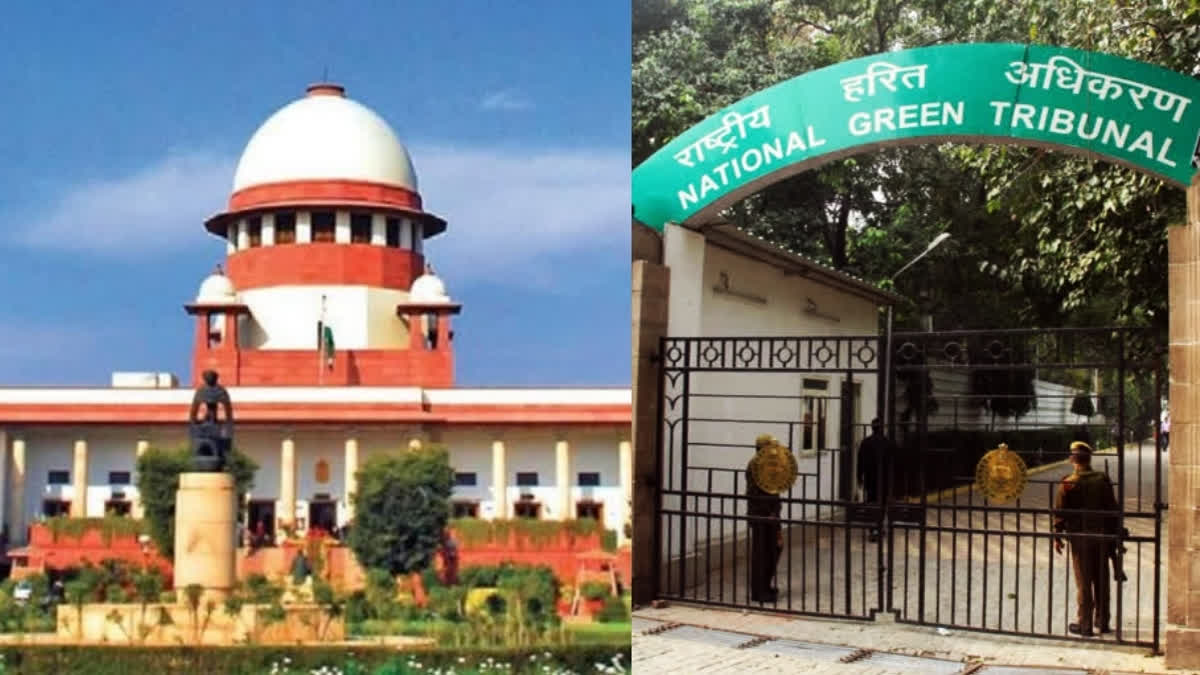New Delhi: The Supreme Court has said that the National Green Tribunal (NGT) is a special adjudicatory body however the discharge of its functions must be in accordance with law which would also include compliance with the principles of natural justice.
A bench comprising justices B V Nagarathna and Prashant Kumar Mishra said: "The NGT though is a special adjudicatory body constituted by an Act of Parliament, nevertheless, the discharge of its function must be in accordance with law which would also include compliance with the principles of natural justice as envisaged in Section 19(1) of the Act”.
The bench observed that it would be useful to refer to what is known as the ‘official notice’ doctrine, which is a device used in administrative procedure. “Although an authority can rely upon materials familiar to it in its expert capacity without the need formally to introduce them in evidence, nevertheless, the parties ought to be informed of materials so noticed and be given an opportunity to explain or rebut them”, said the bench.
The bench said if the NGT intends to rely upon an expert committee report or any other relevant material that comes to its knowledge, it should disclose in advance to the party so as to give an opportunity for discussion and rebuttal. The apex court judgment came on a batch of appeals against a common order passed by NGT, principal bench, New Delhi, directing some thermal power plants to install air pollution control, monitoring devices and also timely utilization and disposal of fly ash as remedial measures.
Also read: Can a person ineligible to be an arbitrator nominate someone else? SC to examine in September
The top court said: “Thus, factual information which comes to the knowledge of NGT on the basis of the report of the committee constituted by it, if to be relied upon by the NGT, then, the same must be disclosed to the parties for their response and a reasonable opportunity must be afforded to present their observations or comments on such a report to the Tribunal”.
The bench said it is needless to observe that the experts’ opinion is the only way to assistance in arriving at a final conclusion. “But we find that in the instant case, the report of the expert Committee as well as the recommendations have been made the basis of the directions and such an approach is improper”, it said.
The top court said it is apparent that the appellants who were respondents before the NGT were not given an opportunity to file their objections to the recommendations made by the committee constituted by the NGT, which is apparent by the fact that the recommendations were uploaded on January 15, 2022, and the final order of the NGT was passed three days later.
The top court said this is a clear case of non-compliance with the principles of natural justice and set aside the NGT order. “The matter is remanded to the NGT for re-consideration from the stage of the recommendations filed by the expert committee constituted by the NGT. The appellant(s) herein are permitted to file their objections, if they are so advised. The NGT shall consider the objections, if any, filed to the recommendations and thereafter dispose of the applications in accordance with law and after giving a reasonable opportunity to all parties”, said the top court.



